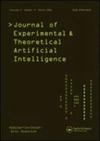从认证评价体系的角度运用机器学习对教师学术发展程度进行研究
IF 1.7
4区 计算机科学
Q3 COMPUTER SCIENCE, ARTIFICIAL INTELLIGENCE
Journal of Experimental & Theoretical Artificial Intelligence
Pub Date : 2022-02-09
DOI:10.1080/0952813X.2021.1960635
引用次数: 3
摘要
本研究的目的是利用机器学习来发现被称为监督和无监督学习的知识,当它被教授训练实例的实际结果时,如进展或非进展表现,并利用教学方法,学生反馈,教师组合和学术基准调查质量保证过程对教师学业表现的影响。此外,它旨在评估和改进执行认证评估系统(AES)的学术人员,该系统涉及学生反馈系统(SFS),教师档案评估(TPA)以及学年(2016-2017)的持续学术发展(CAD),其中汇编了苏莱曼尼大学(1556)名学术人员。总体而言,本研究的结论证实了质量保证取得了进展,提高了教师绩效的质量,并通过应用k均值聚类算法方法根据教师职称分析和组装大数据,加强了教师教学、学术和研究绩效的各个维度。此外,运用二元逻辑回归分析,揭示和预测职称对教师资格评估体系绩效进展的显著影响。K-Means聚类算法的测试准确率达到90%,优于Logistic回归。在未来,无监督学习可以用于提高准确性。本文章由计算机程序翻译,如有差异,请以英文原文为准。
The extent of the teacher academic development from the accreditation evaluation system perspective using machine learning
ABSTRACT The purpose of this study to utilising Machine learning to discover knowledge which is called supervised and unsupervised learning when it is taught the actual outcome for the training instances like progressed or non-progressed performance and investigate the impact of the quality assurance process on the teacher’s academic performance utilising teaching methods, student feedback, teacher portfolio, and academic benchmarks. Moreover, it aims to assess and improve the academic staff members performing the Accreditation Evaluation System (AES) that involves Student Feedback System (SFS), Teacher Portfolio Assessment (TPA), as well as Continuous Academic Development (CAD) for the academic year (2016–2017) which compiled of (1556) academic staff at the University of Sulaimani. Overall, the conclusions of this study confirmed that the quality assurance has progressed, and enhanced the quality of the teacher performance, also reinforces all dimensions of the teaching, academic, and research performance of teachers by applying the K-Means Clustering Algorithm methodology to analyse and assemble a big data according to the teacher academic titles. In addition, the binary logistic regression analysis was executed to reveal and prophesy the significant influences of academic titles on the teacher progression of the Accreditation Evaluation System performance. The K-Means Clustering Algorithm showed better results than Logistic regression by having 90% testing accuracy. In the future, Un-Supervised Learning can be used for better accuracy.
求助全文
通过发布文献求助,成功后即可免费获取论文全文。
去求助
来源期刊
CiteScore
6.10
自引率
4.50%
发文量
89
审稿时长
>12 weeks
期刊介绍:
Journal of Experimental & Theoretical Artificial Intelligence (JETAI) is a world leading journal dedicated to publishing high quality, rigorously reviewed, original papers in artificial intelligence (AI) research.
The journal features work in all subfields of AI research and accepts both theoretical and applied research. Topics covered include, but are not limited to, the following:
• cognitive science
• games
• learning
• knowledge representation
• memory and neural system modelling
• perception
• problem-solving

 求助内容:
求助内容: 应助结果提醒方式:
应助结果提醒方式:


